Luke Smith Selected to 2025 Minnesota Rising Stars List
Luke Smith has been selected to the 2024 Minnesota Rising Stars list. Each year, no more than 2.5 percent of the lawyers in the state are selected by the research team at Super Lawyers to receive this honor. Super Lawyers, part of Thomson Reuters, is a rating service of outstanding lawyers from more than 70 practice areas who have attained a high degree of peer recognition and professional achievement.
Reopening Minnesota Workers’ Compensation Claims
Once an employer or insurance company provides medical treatment, a workers' compensation claim can stay open indefinitely. As long as the medical treatment is caused by the work-related injury, the insurance company is required to pay for it.
Luke Smith Selected to 2024 Minnesota Rising Stars List
Luke Smith has been selected to the 2024 Minnesota Rising Stars list. Each year, no more than 2.5 percent of the lawyers in the state are selected by the research team at Super Lawyers to receive this honor. Super Lawyers, part of Thomson Reuters, is a rating service of outstanding lawyers from more than 70 practice areas who have attained a high degree of peer recognition and professional achievement.
Light Duty Jobs for Injured Workers in Minnesota
After an employee sustains a workplace injury, there is often a period of time in which the employee could work in some capacity, but cannot physically do all of the normal job duties. During that period of time, the worker will continue to receive wage loss benefits unless light duty work is offered.
What Happens If a Worker Dies On the Job in Minnesota?
Workers' compensation death benefits include $15,000 in funeral and burial expenses, weekly wage payments to the surviving spouse and dependents, and a $60,000 payment to the deceased worker's estate.
How Long Does It Take Workers' Comp To Approve Surgery?
A workers' compensation insurer is generally required to approve or deny surgery within 7 business days. There are some exceptions which are explained fully within.
What is Permanency in Minnesota Workers’ Compensation?
Permanency is a percentage rating used to express the permanent loss of body function caused by a work-related injury. The amount of compensation is calculated by multiplying the percentage rating by a dollar amount.
Workers’ Compensation For Minnesota Remote Workers
Remote work is more common today than ever before. The law allows workers compensation for remote workers just as it does for onsite workers. Remote workers that sustain work-related injuries may be entitled to medical benefits, wage loss benefits, permanency, and rehabilitation benefits.
Attorney Luke Smith Featured By Authority Magazine
Attorney Luke Smith was featured in Authority Magazine’s series: Top 5 Mistakes Businesses Make Without Legal Counsel.
What is a QRC in Minnesota?
The objective of a Qualified Rehabilitation Consultant (QRC) is to help injured workers return to suitable gainful employment. QRCs accomplish that by communicating with doctors and employers about restrictions, helping with job search, and arranging retraining. That process is called vocational rehabilitation.
Workers Compensation for Mental Health in Minnesota
Does workers comp cover mental health? In Minnesota, an employee can use workers comp for mental health if it is: PTSD caused by a work-related traumatic event; or another psychological condition caused by a physical work-related injury.
Does Workers Compensation Cover Independent Contractors?
An independent contractor is generally someone who is running a business that serves multiple customers with special expertise or skill that the customers don’t have, for a profit. An employee is generally someone who is being paid for his or her time to perform a task. The difference between an employee and independent contractor boils down to two things: control and financial risk.
What is a Notice of Intention to Discontinue Workers' Compensation Benefits (Minnesota)?
What is a Notice of Intention to Discontinue Workers' Compensation Benefits (Minnesota)?
How Long Do Workers’ Compensation Benefits Last in MN?
What is the longest you can be on workers' comp? Technically, the answer is until retirement. Practically, the answer is more likely as long as you are totally or partially disabled because of the work-related injury.















